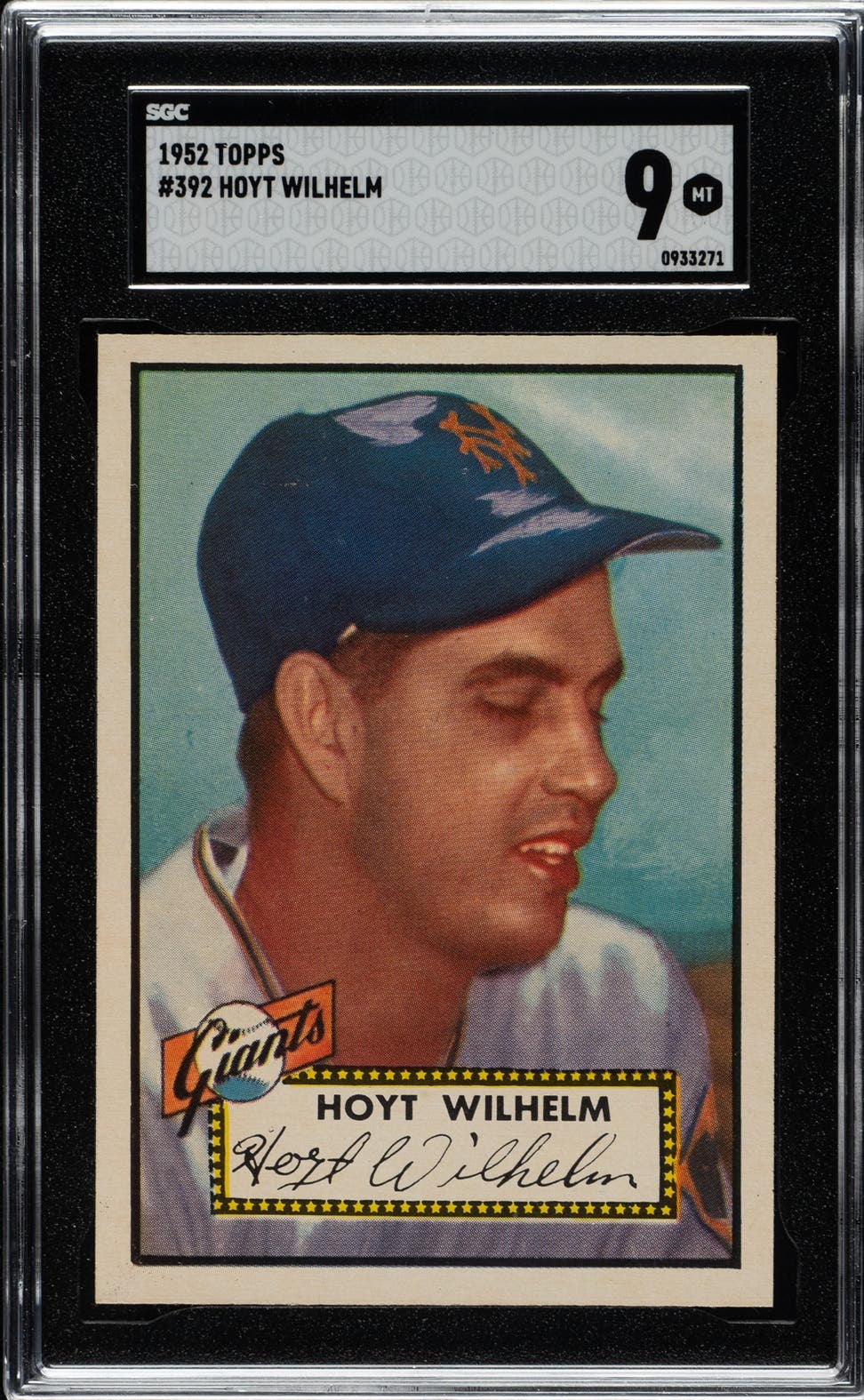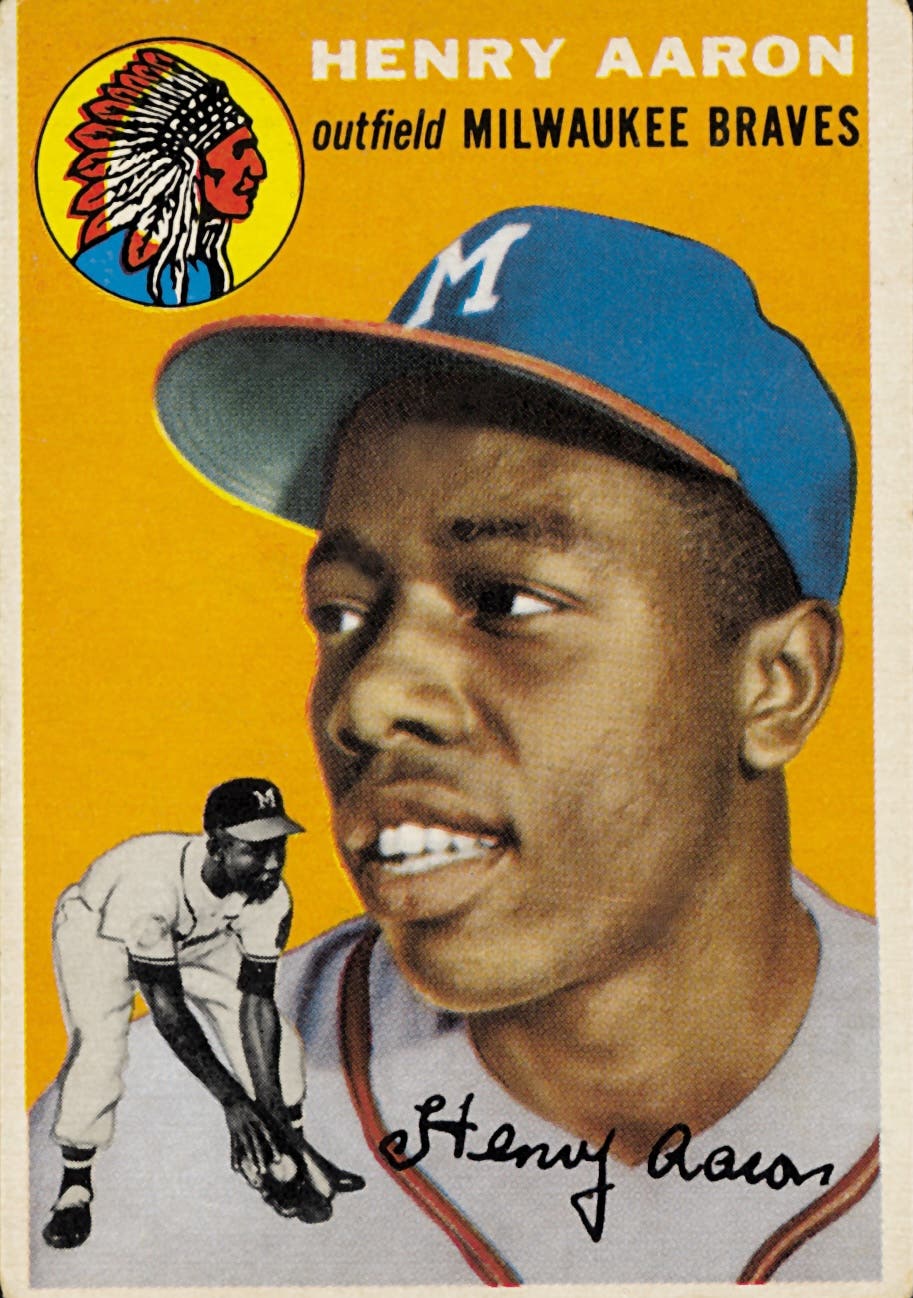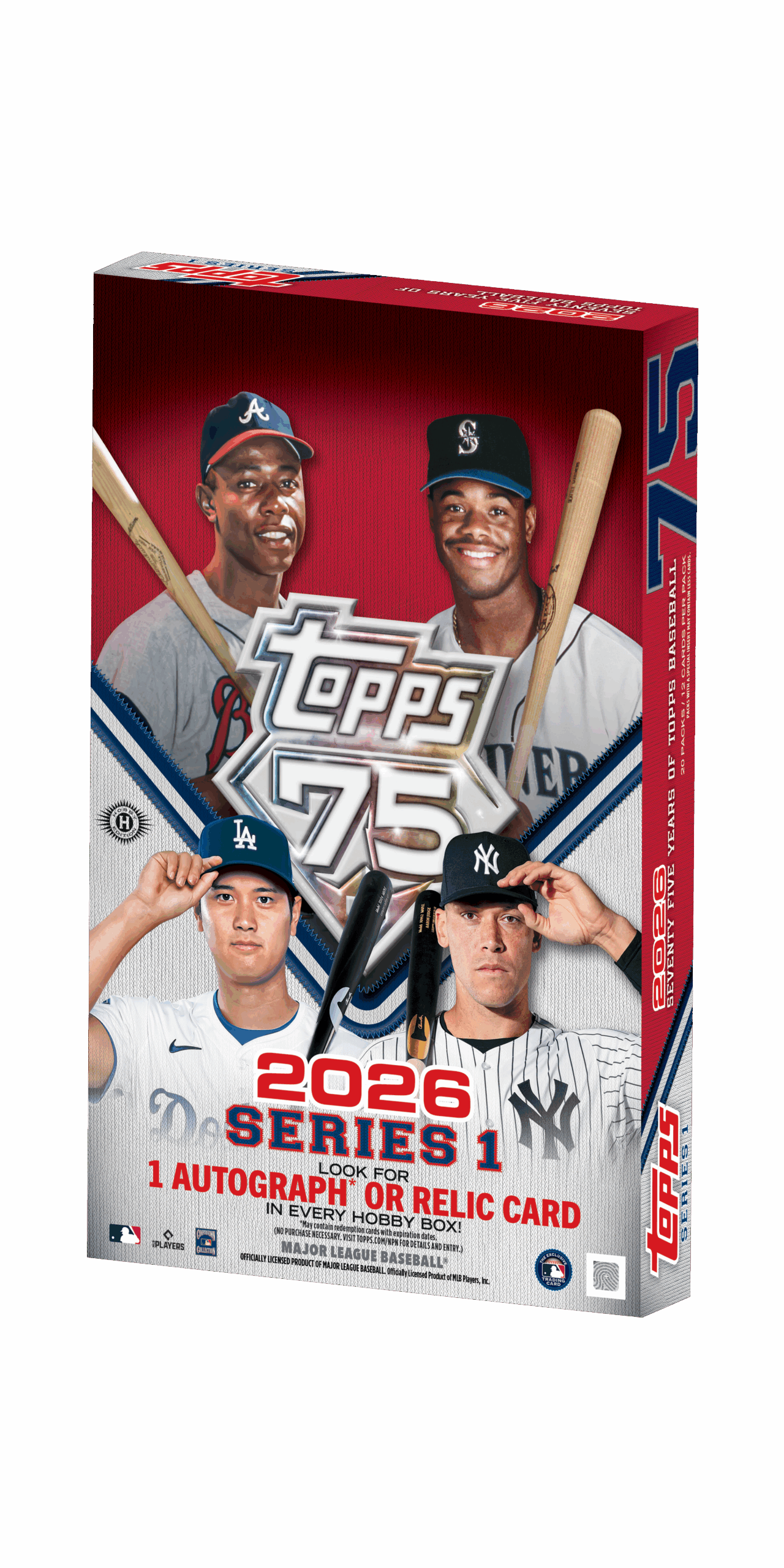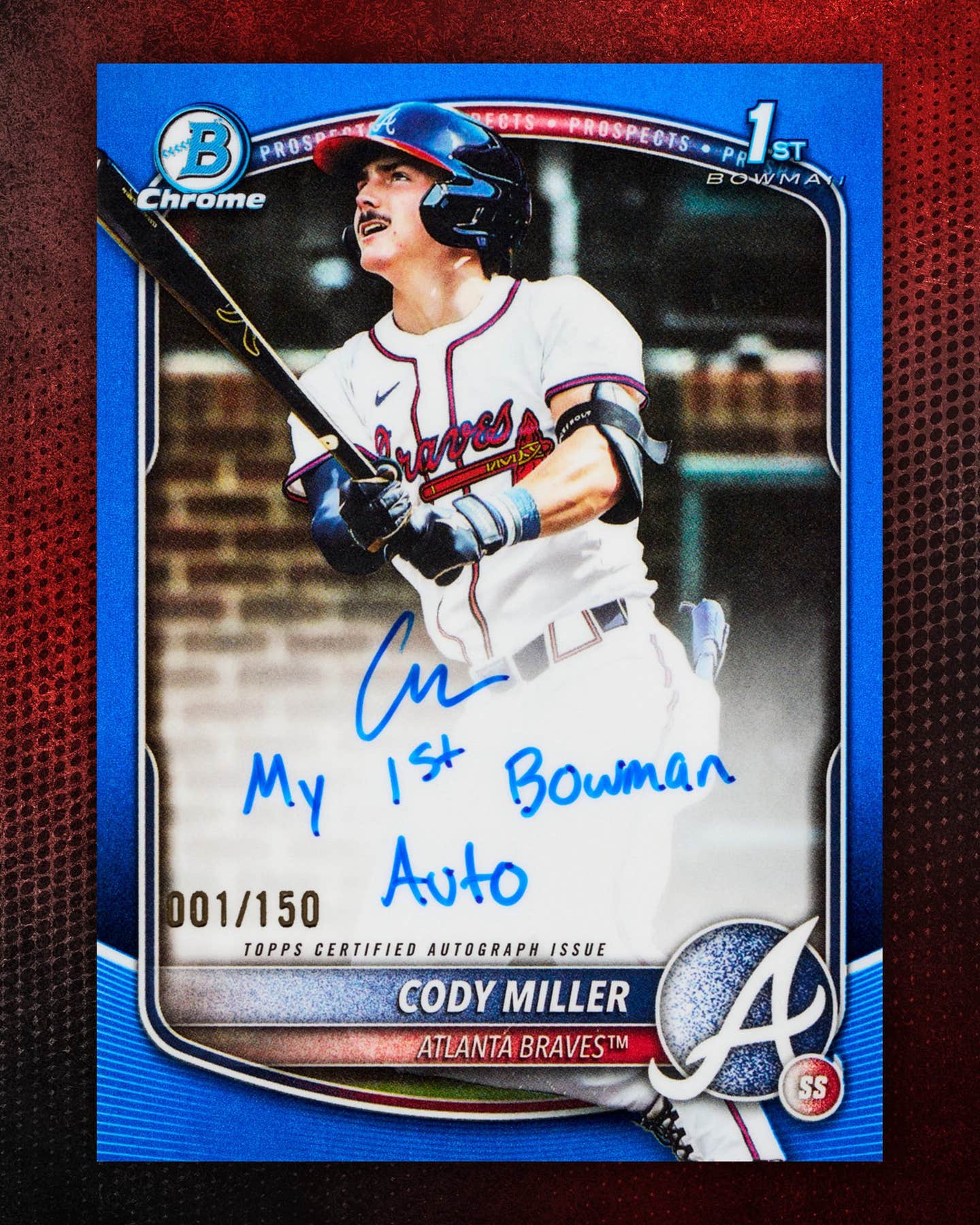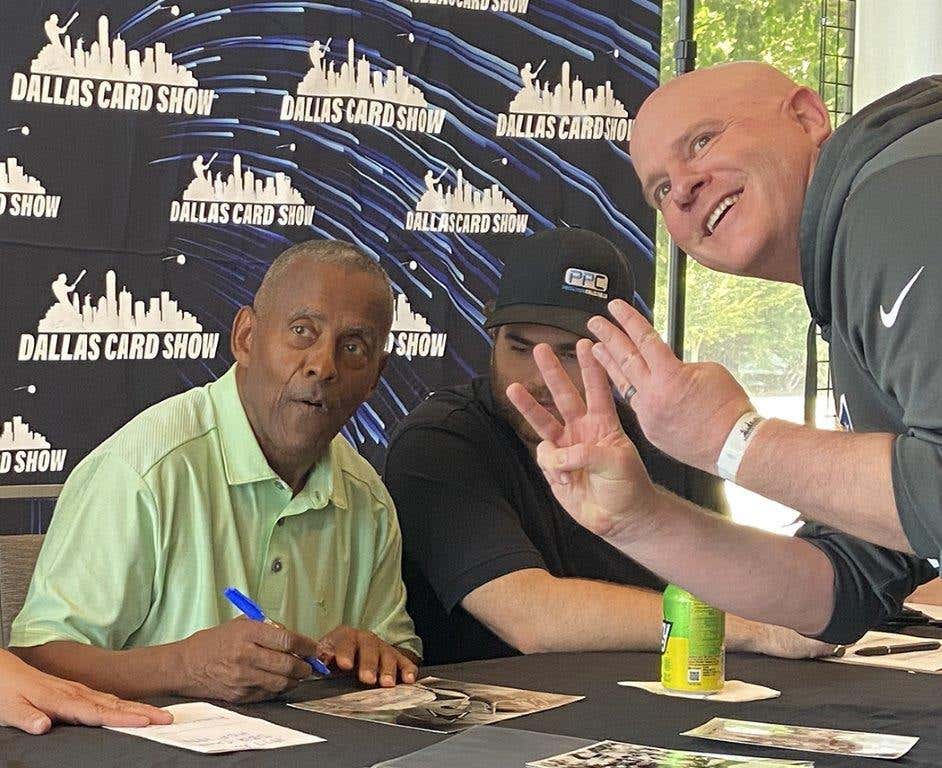News
Orlando Part 2: Autograph grading ready to explode
If it takes one to know one, then that explains why PSA and PSA/DNA continue to offer new services for collectors since Joe Orlando became president of the companies in 2002. The leaders in sports card grading through PSA, Collectors Universe is also the market-share leader in autograph authentication (PSA/DNA) and in many other areas in which it is virtually alone, like ticket grading.
Orlando is a longtime collector who many hobbyists know personally. He was also a graded-card collector and actually once wrote an opinion piece for SCD defending the then-new slabbing process a decade ago. SCD spoke with him about his personal and professional opinions on the sports collecting hobby.
SCD: What have been the real growth areas for the company in recent years?
JO: PSA/DNA, our autograph authentication service, has really expanded. There's no question that the concept of third-party autograph authentication has become a well-accepted part of the industry, and it continues to grow.
Most notable under card grading is the type of cards being graded. There's been a huge explosion in the grading of commons. A lot of that has to do with the growth of the PSA Set Registry, but in general, there's a renewed interest in set collecting, and the evidence of that is that we're getting thousands upon thousands of cards every month that we rarely received five, six, seven years ago. So, we're not just receiving the top 15-20 cards in a set, but in some cases, all 800 of them.
SCD: How has the company changed in the years you've been there, whether that's in the way the company does things or the products you offer? What are the most fundamental or structural changes you've seen?
JO: Right around 1998-2000, when grading really took off, PSA went through a lot of growing pains. It coincided with the great home run race with McGwire and Sosa and there was a lot of energy in the hobby.
In the last five or six years, there has been a noticeable improvement in our efficiency, and that's probably the most noticeable thing from the outsider's perspective. Our operations people deserve the most credit. The joke used to be that if you submitted something in spring training, you were lucky if you got it back by the World Series, and that was caused in part by our growth spurt, when the graded-card market changed seemingly overnight. Our turnarounds and efficiencies have greatly improved.
I've also received more compliments in terms of grading consistency in the last two to three years than ever before.
In terms of new programs, I think for the first 10 years of our company's history our main focus was card grading. We entered the autograph market in 1998, but the company was still trying to find the best way for the service to work. If you look at the last five to six years, we've added so many new services: ticket grading, ball grading, autograph grading, game-used bat authentication and grading, original photo authentication, autograph encapsulation and we have designed a brand-new cancelled-check holder. Last but not least, we launched the PSA Set Registry, which has had a dramatic effect on the marketplace.
Our ability to authenticate autographs has dramatically increased because we've built a staff of people who can handle varying types of autographs. So, if you compare the last few years to the prior 10-11 years, we've really diversified what we're able to do, and we'll continue to do that. Our ultimate goal is to make PSA as much of a one-stop shop as we possibly can for authentication and grading needs. We're going to keep trying to offer more services and programs.
SCD: Which service of yours is a sleeping giant, one you think it will explode in the coming years?
JO: The company really believes in the concept of autograph grading. If you look at the history of this hobby, well before third-party authentication, and you look at old auction catalogs and advertisements in SCD, for example, the sellers were describing autographs with grades. "This is a Babe Ruth '8' signature on an EX-MT ball." So the reason I think that concept should excel in the future is that it's not a foreign concept to the hobby, it's just that a third party has now entered the equation to render their opinion. That gives the grade more meaning, more credibility.
So we figured if we're already authenticating the autographs, doesn't it make sense for us to offer the customer the ability to grade that item? If there's one thing that I think has a chance to change the industry, it would be the concept of autograph grading.
Also, in the world of cards, I've noticed a lot more non-sports cards are coming in for grading. What's interesting is that non-sports weren't produced in the volumes that sports cards were produced in, so there's an attractive appeal from a rarity standpoint. Another nice thing about non-sports cards is that while there is so much controversy in sports today regarding the modern athlete, it doesn't exist in the world of fantasy. Spider-Man and Superman aren't going to be caught taking steroids (laughs). The non-sports issues are dealing in fantasy, and that escape element has helped more people become attracted to that segment, and we've noticed a lot more interest in that area.
SCD: Going back to autograph grading, one legitimate concern I've heard is that unlike a slabbed card, which as long as it remains in that slab is going to be in the condition it was in when it was graded, an autographed item can change significantly over time. I've got some autographs that have virtually disappeared from their baseball. How do you account for the fact that a graded item can disintegrate in quality?
JO: It's a great point, and we make it very, very clear in our autograph grading guide, on our website and in our SMR materials, that due to the nature of autographs, we cannot guarantee the condition of the autograph over a long period of time because people can choose to store them in any manner they want.
Now one thing that I think is overblown is that some people think all autographs deteriorate badly, they all fade away, and that's simply not true. Otherwise we wouldn't see these blazing autographs of Jimmie Foxx, Babe Ruth and Lou Gehrig today. Stored properly, for the most part, you can preserve the quality of an autograph.
You're absolutely right - we cannot guarantee for the life of the item that it will retain the exact same quality, but what we're trying to provide is a third-party opinion so consumers feel more confident about the quality. After that, it's up to the consumer regarding how they want to store it or display it. We actually thought, "Should we permanently encapsulate some of these autographed items," but we all came to the conclusion that because collectors display their items in such a variety of ways, we don't want to prevent them from doing that. We don't want to seal a Babe Ruth baseball in a permanent holder, where it can't be displayed the way they want to display it.
SCD: Are there any other trends in niche areas that we haven't discussed?
JO: Part of the reason we decided to create a cancelled-check holder was because of the increased popularity of collecting cancelled checks. It crosses both sports and non-sports. Marilyn Monroe checks are just as popular in that field as Babe Ruth checks are in sports. I can remember, five to six years ago, you could pick up a high-end Babe Ruth personal check for probably about $1,500. A Babe Ruth check just sold in an auction for $11,500. There's definitely been an increase in their popularity and that's part of the reason we developed this cancelled-check holder.
SCD: Why have checks become so popular?
JO: As a collector, I used to have some checks in my collection. They offer consumers an added level of security in terms of authentication because the check is hard to counterfeit. They're very easy to display. If you buy a Babe Ruth check, you can pick up a reprinted photo for $20-$50 and frame it up with a check, and they look great in a display. Since they're not too large, they make for easy storage. There are a lot of nice things about them.
There are checks for a lot of the major figures in both sports and non-sports. In fact, it's my understanding that Presidential checks are very popular, although some of them are extremely rare.
SCD: It seems like PSA has had a string of legal battles, primarily behind the scenes, in the past few years. Is that typical for a company of your size and stature, or am I overestimating how much that's happened?
JO: In some cases, the litigation is merely a part of business, and our business is no different than most businesses. On the other hand, I think there's a level of emotion in our business that doesn't exist to this degree in most other businesses. Generally speaking, when emotions run high and enter the equation, unnecessary litigation can be the unfortunate result.
But I wouldn't characterize a few legal issues in the course of a few years as a "string of legal battles." In any business, especially when your company is as successful as ours, I think legal battles are a part of doing business because you become a target. Some litigious people may view our company as one with deep pockets, or a chance to win the lottery, but we will defend our company and brands vigorously.
Also, consider that the entire concept of third-party authentication and grading removes some of the power away from the seller, and as our brand becomes more and more powerful and accepted, we become, in the minds of some who may be selling problematic goods, a threat. So we accept that as a part of the growing pains in our line of business, and it's important for people to remember to consider the agenda of those who denounce the third-party grading and authentication services, because when you get past the surface of what they're saying, you can usually find the reason behind their ranting.
SCD: PSA/DNA, in general, seems to be exploding. How many authenticators are there? Most people know Steve Grad as the lead autograph authenticator, but who else is there and what's happening there that you're able to handle the volume you're talking about?
JO: We have three full-time autograph authenticators in house. We list them on our website: Steve Grad, Zach Rullo and Kevin Low are full time. We also have a group of consultant authenticators who help us out in varying situations, whether it's an on-site authentication, or if our in-house staff needs a second opinion on something. That consultant group includes somebody we recently added, Herman Darvick, plus Bob Eaton, Roger Epperson, Mike Gutierrez, T.J. Kaye, John Reznikoff, and that's just for autographs. It really is a diverse group. For example, John Reznikoff is very well-respected in the area of historical autographs; Roger Epperson is the same in the area of music/rock 'n' roll. All of these individuals have specific expertise and they've really helped build our brand and give us, I think, the best overall team in the marketplace.
SCD: PSA/DNA does bats, also. Is that the only other area of PSA/DNA?
JO: No. Our game-used bat experts are John Taube and Vince Malta but we just launched the original photo authentication service and our experts there are Henry Yee and Marshall Fogel. Photos, much like checks, have become very, very popular. Photos that were mere throw-ins to deals in the mid-1990s are now selling for hundreds and, sometimes, thousands of dollars.
To me, the surge makes a lot of sense. Not only can a photo be dated to a particular era and sometimes a particular year or event, but you can think of it as a larger, more displayable baseball card. You can put it in a frame and put it on your wall. Most original photos are 1-of-1s, or one of only a handful. The increase in value in the past few years of some of these photos has just been astonishing. Unfortunately, there are photos that are being sold as "original" photos and they're not. In some cases they were produced decades after the original photo was taken.
We just started this service, but we believe over time it can clear up some of that confusion and ensure that consumers are getting what they pay for, because there is some confusion over what a Type 1 vs. a Type 4 is.
In game-used bats, there's been steady and consistent increased interest. If you look over the last several years, the interest in game-used bats has increased every year, and I think part of that is due to the comfort level, knowing there are reputable authenticators in the marketplace. There's also more information available than ever before. The idea that you can hold in your hands a bat that was made for Mickey Mantle or Ted Williams is fantastic. There's something special about them; they're tied back to the actual history of the game because these were the weapons used by hitters to make their mark on the field. With bats, much like autographs, the first stage of our service was authentication, but now it's grading. The grading of bats will be a very important factor to the value of bats down the road. You can already see that reflected in the prices realized for exceptional bats vs. mediocre examples. Exceptional Mantle bats have approached and exceeded six figures while mediocre bats are selling in the $15,000-$20,000 range.
The interesting thing about a bat vs. other collectibles is that the average person, a family friend who's never collected before, can pick up a bat used by Willie Mays and understand the attraction. They appeal to almost anyone who's remotely interested in sports. You can touch it and feel it, and as with other collectibles, bats can be collected by theme.
SCD: It's been about a year since Jimmy Spence left PSA/DNA, and that created a new era for the autograph authentication area, he was so much the focus of the service. How has that year gone?
JO: I have a great deal of respect for Jimmy. I knew Jimmy before either of us came to PSA. He was a part of this company for several years and contributed to our growth while he was here. There was no ill will upon his departure and we wish him well. It's a natural part of business and careers.
In terms of impact, I can't say his exit from the company has had much of an impact, and the numbers are there to support that. Since Jimmy left, we have enjoyed record quarter after record quarter. In fact, our submissions have more than doubled in the past year, and as a public company, the unit counts can all be verified. None of this is intended as a knock on Jimmy at all; what it shows is what a fantastic job our experts and operations staff have done, and that our brand is as strong as it ever has been. We have always believed and continue to believe that building our brand is a team effort, and the hobby has answered that question loud and clear. It sounds biased to say we haven't seen an impact, but the numbers support that.
SCD: There's continual controversy in the autograph authentication industry. It's a very contentious field, and the HBO test caused quite a stir. As the market leader, PSA/DNA is in a position to receive pot shots, too. It seems that it must be a frustrating or emotionally draining field to be in.
JO: People have asked me, "What did you think of the HBO special?" Being a hobbyist myself, it's always frustrating to see that when a netwok such as HBO presents our industry, they always focus on a negative aspect of it and they don't provide a solution to the problem or give the answers that people would like to hear. This can scare away those who may consider entering our hobby and hinder future growth. They present one side, but not the other side. It's never a balanced presentation.
The realist has to remember that it wouldn't make for great TV. The tabloids are covered with controversies; it sells papers, magazines and, for television, it's all about ratings. As much as it frustrates me and other hobbyists, I think it's something we have to accept.
It would be nice to see more programs focus on the solutions. No one wants to cover up that there are issues in this business; there are issues in any business, and in relation to autographs, there are issues related to forgeries and counterfeits. But there are companies, such as PSA/DNA and other respectable companies out there, doing some good and solving some problems in our business. The positive side of our industry doesn't get enough coverage. But that's entertainment.
You called it a "draining" business. There's a lot of emotion in this hobby, a lot of passion. I'm a collector; I'm very passionate about the items I collect. If you think about someone who invests in stock, there is very little emotional attachment to the money being spent. In our industry, you have substantial amounts of money being spent on collectibles, and a level of emotional attachment that you don't have in other areas of pure investment.
This is also part of the growing pains in the business we're in - third-party authentication. There's a small, loud minority of people who have been doing things a certain way for many, many years. The concept of third-party authentication and grading does remove some of the unilateral power away from the seller, and it empowers the consumer. Some people view that as a threat, and some of them will be emotional. But when you get past the comments on the surface, you can see the agenda.
SCD: Given the volume PSA/DNA produces, it's not surprising that I hear from people saying the company made a mistake, or changed its mind on an item.
JO: Experts are human beings, and human beings are capable of making mistakes. Obviously if we made numerous mistakes over a long period of time, we wouldn't earn the reputation that we currently have.
Think of it this way: Each quarter for the last few quarters, we have processed more than 100,000 per month. If our rate were a mere 1 percent, which would be miniscule for an expert in virtually any field, that would mean we'd be making 1,000 or more mistakes per month. Of course, no one is claiming that level of error and we are certainly not making that level of mistakes, but I just wanted to illustrate the point. All experts make mistakes but it's the ability to minimize those mistakes that makes an expert great.
Of course our experts are capable of making a mistake, but you can't earn the reputation that we have, and you can't gain the amount of respect and credibility that we have if people didn't have confidence in our product. If people didn't have confidence in our product, then why did our submissions more than double vs. a year ago? It doesn't make us infallible, but consumers continue to support our brand.
Yes, we make mistakes, but in comparison to the overall value of the system, it's almost irrevelant.
SCD: Are there other areas that you're looking into for a grading or authentication service?
JO: We did announce many months ago that we will be launching a service for unopened packs. We are still working on the holders for that service. We do intend on launching that as soon as we possibly can, but the holders are certainly one of, if not the most, important and tricky parts. We are working on that right now with the plastics engineers and hope to have that service available to the public by the summer.
SCD: What would you say regarding the quality of the card-grading companies currently? Five years ago, there were many graded-card companies that were clearly just fronts for people moving bad cards. Is that still a significant problem today?
JO: The perception of that problem has definitely dwindled over the last three, four, five years. Unfortunately, we still feel some of the effects of that to this day. There were collectors who wanted to jump into the graded-card market five or six years ago, and if they were exposed to a grading company that either is no longer around or had questionable grading practices, they no longer spend money in the hobby because they feel they were burned. That affects all of us, from the dealers to the hobby publications to the grading services.
Some of those ill feelings are still left over. The good news is that as time goes on, a lot of those feelings fade away. So, I think the tried and true companies will hang in there over time. It's healthy for the hobby to recognize the companies that are doing a great job, and that has helped stabilize the marketplace.
SCD: You would think that in graded cards, most of the vintage cards would have been graded by now, and the new-card market is down. How can PSA continue to increase its grading quantities? Is that by increasing market share?
JO: It's a mix of things. From a business perspective, we have to grab as much market share as we can by branding and marketing our company as best we can. That's part of it. But the way to stay on top of your game is to stay creative and stay current.
The modern card craze started to falter around 2001-02. If you look at the timing of the PSA Set Registry, that started in 2002-03.
People ask us, "How can your grading submissions be up if the modern-card market is somewhat down?" Maybe the overall modern-card marketplace has taken a hit, but we've stayed creative in developing the Set Registry program, so for us, people have filled the void of modern star or rookie card submissions with the grading of commons. There are many people submitting what I would call "modern common cards." Everyone is used to grading the best Barry Bonds, Derek Jeter or Alex Rodriguez rookie, but now, people are grading lots of those player's cards, and they're grading complete sets. Three to five years ago, that hadn't entered the mind of many people, but now, there are people putting together sets from the 1980s and the 1990s, all the way through to current products. The interest in set collecting helped fill the void in the aftermath of the struggling modern card market.
We know from hobby history that everything is cyclical. There's a great rookie class in the NFL this year; probably the best rookie crop that I can remember. From a business perspective, we have to stay on top of the market and stay creative.
It's also important to note that our supporters have been very loyal through the years, and we owe them a big thank you for that. I think they want to stick with companies that have been around and proven themselves. They believe our brand will carry weight, and that has been our marketing campaign from the start. Collectors want a brand that will be universally accepted in the hobby, and that focus on branding has kept our market share very strong through the years.
SCD: In closing, tell us why you're confident about the future of the hobby.
JO: On a positive note, the hobby has come so far in the last decade or so. Collectors have a lot more items available to them than ever before, with the Internet, catalog auctions and through publications such as SCD. It's a much safer environment. For all of those who want to be detractors of the current market, it is a much safer environment for the consumer than it was years ago. Think about the 1980s. Even though that was the era of the hobby boom, it was the Wild, Wild West in many respects.
While our industry still has room for improvement, it really has come a long way. There are loud people out there who want to focus on the negative, but if you compare our industry today with the state of the market 10, 20 or 30 years ago, it's never been better for the consumer.
There was a period of time when the hobby lost a lot of people because they were burned by bad autographs or counterfeit cards. The hope is that by elevating this business to another level, we can bring some of those people back because the environment is much improved from years ago.




